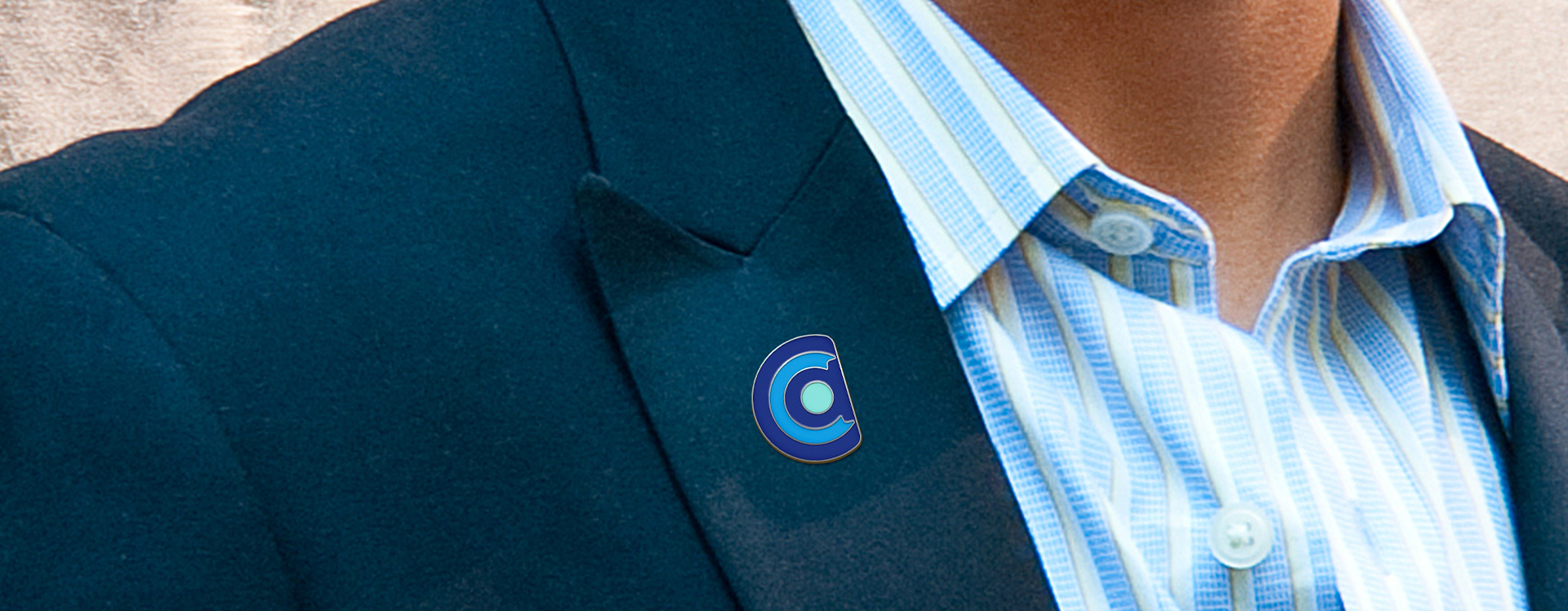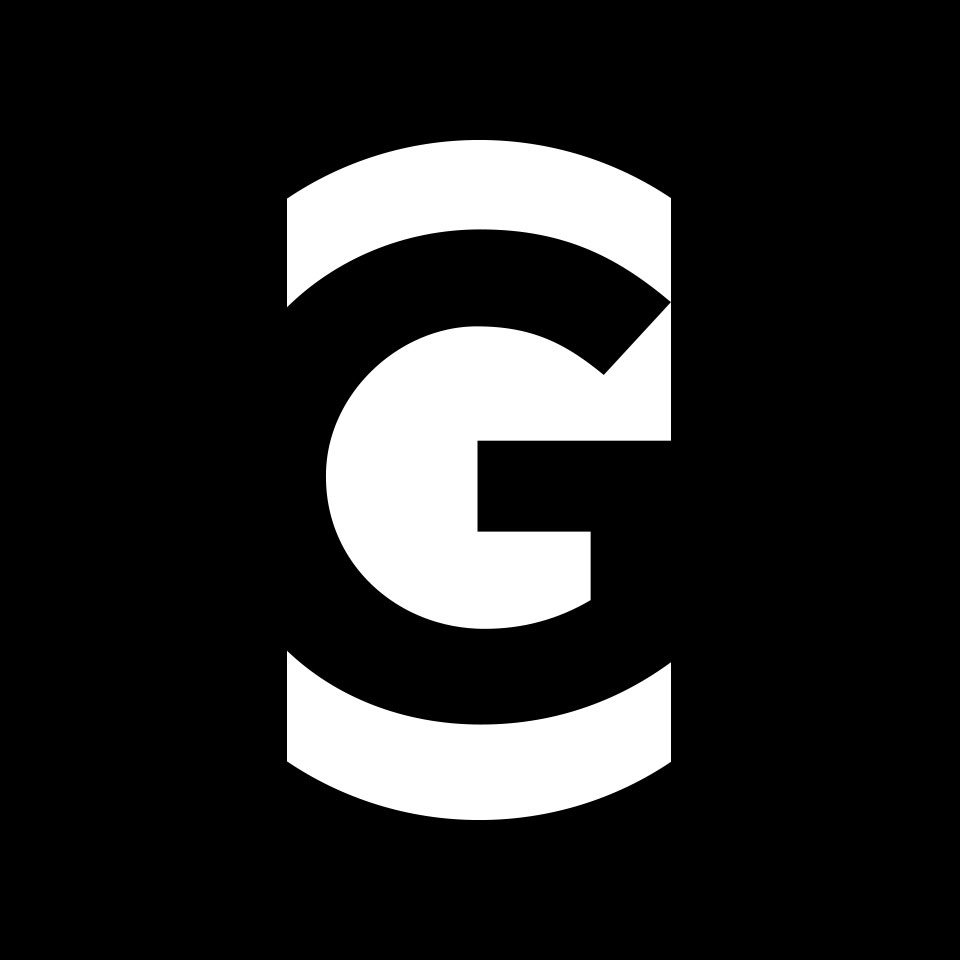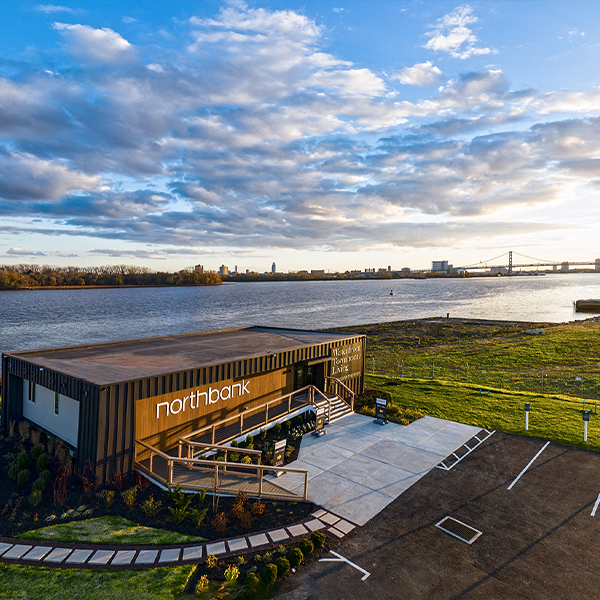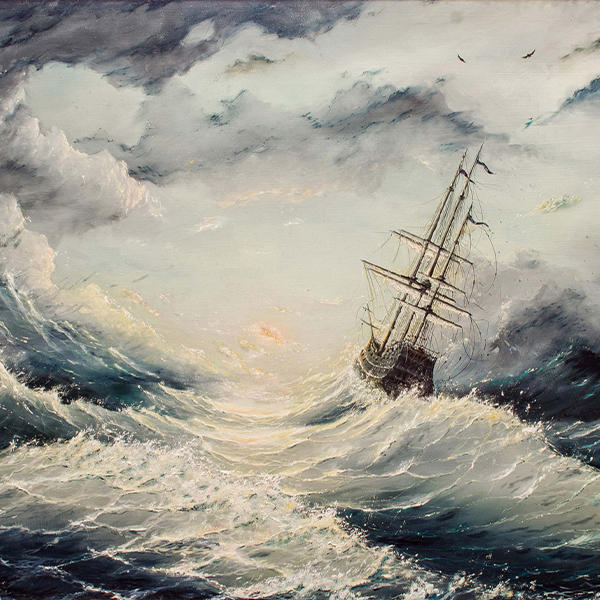Episode Summary:
A rebrand is more than just a visual refresh. It should also change the way your organization works internally, engages the community, and fundraises. Since rebranding the newly merged Colorectal Cancer Alliance (CCA) several years ago, the organization has been able to double its revenue and build a highly engaged network of supporters that share its dedication to ending colorectal cancer in our lifetime. In this episode, CCA’s Chief Development Officer shares the process behind merging two brands, building an engaged “Nation of Allies” community, and capturing the urgency of the organization’s efforts through a new brand mantra: “Tomorrow Can’t Wait.”
Transcript:
Clara:
When cancer is found in the colon or rectum, it’s called colorectal cancer. It is the third most common cancer found in the United States, it’s the second leading cause of cancer death, and, contrary to popular belief, it affects men and women of all racial and ethnic groups.
In today’s episode, I sat down with Grafik’s Chief Brand Strategist Hal Swetnam, Lynn Umemoto, Principal, Client Strategy, and Regan Huneycutt, the Chief Development Officer of the Colorectal Cancer Alliance, the oldest and largest cancer nonprofit in the United States.
Grafik and the Alliance have been working together for nearly three years, and together have successfully raised awareness of the dangers and methods of prevention for colorectal cancer.
Our discussion led to some really interesting topics and fun anecdotes surrounding the challenges between agencies and nonprofits. We also talked about how our work over the past three years has not only successfully helped the organization raise awareness, but also raise funds.
So sit back and take a listen.
Hal:
Hi!
Regan:
Hi!
Clara:
Well, first and foremost, Reagan, thank you so much for being here today. We are so thrilled that you were able to join us. As we dive right in, would you mind giving us a little bit of an introduction of who you are and what your role is at the Alliance?
Regan:
Well, I’m the chief Development Officer at the Alliance. I’ve been with organization three years now and I had my three year anniversary just a couple weeks ago.
And you know what is so funny, just reflecting on getting prepared for this interview, my very first week at the Alliance is when we were interviewing all of the firms that we were considering to bring on board for the rebrand. So it’s just kind of fitting that here we are three years later.
But in my role, I am responsible for revenue generation. So I lead the fundraising team. And we have been very, very lucky and very blessed to experience wonderful growth in the couple of years–the organization has almost doubled in revenue in those three years, so we’re about a $13.3 million nonprofit. And we raise money in a couple different ways through our individual giving program. So those are folks who either make major gifts to the organization annual fund donations, do their own third party fundraising events, or unfortunately, a lot of giving from individuals in memory of people. So someone who maybe passed away from colorectal cancer and they give to us in that person’s memory. We also raise money through our own signature special events. So we have a 5K Undie Run Walk series in 20 cities across the country and a Blue Hope Bash that started in DC 10 years ago. I believe that has now replicated to four additional cities. And we’re adding three more next year, we do a couple other signature fundraisers and other zip codes as well. We raise money from corporate and foundation givers. So our industry partners, and quite a few family foundations that believe in our mission and support the good work that we do.
So I sort of lead the high level strategy for how we raise money and am very fortunate to have a great team and to be a part of building this organization and ultimately helping end this disease in our lifetime.
Clara:
That’s incredible. Congratulations on everything that you’re doing. What was your hope in this rebranding initiative and what was most important to you and your team?
Regan:
I think that that really evolved over time. I would say in the beginning, it was really about unity, and us coming together as an organization and as a community.
So the Alliance, previously the Colon Cancer Alliance, had merged with the Chris4Life Colon Cancer Foundation in January of 2016. I joined the team in April, and then we partnered with Grafik. It was early summer…it was, early summer?
Hal:
Yes, it was early summer.
Regan:
Yes, literally when I started. So you know, I had never been through a merger before either in a for profit or nonprofit setting. And it was just an amazing experience. It’s really like bringing two families together. You know, there’s duplications of roles, there’s, we did it this way, but we did it that way. We had a lot of even like visual elements in the brand–not so much branding, but just kind of messaging and language and things that were attached to Chris4Life that there was some energy around hanging on to some of that. And it was the legacy of Michael’s mom (Michaels Sapiensa our CEO), his mom was Chris and the Chris4Life Colon Cancer Cancer Foundation was founded in her memory. So we were in this kind of brainstorming phase of figuring out who’s on first and what stays and what goes.
So the process of exploring this rebranding really helped accelerate that sense of unity and bring those two teams together. And then sort of the backdrop to all of that was the community that we represent. You know, colorectal cancer kills 50,000 people a year, it’s the second leading cause of cancer-related death, and we’re a $13 million nonprofit. And back then we were $6 million nonprofit. I mean, that should not be the case.
So we really talked as a team about, you know, what is it that we can do that helps galvanize this community, that helps bring people together, that helps really kind of put a flag in the ground that says, “We’re going to do something about this disease. And we’re going to help grow awareness for colorectal cancer.”
Like, we’ve seen so many other disease states like breast cancer, and Parkinson’s and Alzheimer’s and so many others, and the rebrand really was a great vehicle to do that. So we really honed in on, what is our identity? What is our name? What is our look? What is our feel? How do we talk about ourselves? What is it that we’re committed to doing, and then we were able to launch that to our community as sort of this rally cry, and they completely responded.
And it has been such an important vehicle in the growth trajectory that we’re on, it really did evolve. It was in the beginning, like I said, a lot about the merger and bringing the staffs together and kind of figuring out who’s on first. And then as it developed, it completely shifted to being about our community and what our community wanted. And what it was they felt like they expected from the nonprofit that represents their disease day and just been a really cool evolution to witness.
Hal:
It’s funny, because when you talk about that, I forgot that you were so new to the Alliance when we walked in the door. And, and now that I looked back, it’s like…you were Switzerland, through a lot of the process, right?
I mean, because there was like, wait a second, like you said, “We used to do it this way. Why are we, why are we emerging away from that?”
Regan:
Yes.
Hal:
And it’s so funny you say that, but when you think about that process, there must have been things that you were like, considering, “Are we going to get through this process?” It can seem to be so daunting at first, because there was so much on the table.
Regan:
Yes.
Hal:
What were you most concerned about?
Regan:
I’m a very, like, tactical, right-angle type person. So, I’m thinking about like, in the supply room there’s like boxes and logo letterhead, and, oh my God, like, just the task of reprinting, I just go to things like that. And I felt like, early on in our meeting, it was just like, “We gotta let go of work, it’s going to take time,” it’s not like the day that we launched the new brand, like all the new logo things will be here. It’s going to be an evolution in our process.
And I think you guys helped talk us off the ledge on a lot of those things. But um, yeah, it’s a really interesting process to be in, especially fundraisers, the development team is a lot of Type A personalities, a lot of very kind of confident, self-assured people. And they’re normally like, pretty okay with sharing their opinions. And I will never forget, when we came in here to you all’s office, to see, I think you showed us like three versions of the brand? And I mean, it’s like, you were in front of a firing squad.
**Laughter**
Hal:
Right.
Regan:
Like this, like that, da, da, da!
I think you guys even used the analogy, don’t “Mr. Potato Head” it. Don’t pull this, from this, and this. But I think I made a comment at the end, like, you guys are awesome. You just took all that feedback. But part of why the feedback, I think was so intense, is that we’re working for a nonprofit, many of us have lost loved ones to this disease, we’re insanely passionate, and not to say people that are, you know, working for a for-profit businesses aren’t passionate, but we’re just kind of cut from a different cloth.
We eat, sleep, breathe this. And we were so excited about what this meant for our community that there were a lot of opinions and a lot of really strong-willed people. And we got through it. I mean, there definitely were some times where people had to…I always use that saying, like, “kill your darlings,” you know? You gotta let it go. You got to move on.
But I think that there was so much value in us as a newly merged entity going through that process, like you talked about, like a framework on which we built partnership and collegiality. And, you know, alliances, alliances formed! I mean, it just there–there were really critical conversations that had to be had. And people had to really put their thoughts and their feelings and their opinions and their criticisms on the table. And it really helped move us forward as a merged entity. But there were definitely a lot of moments where I was like, “Wow, this is a lot.”
Clara:
How do you think that the rebrand has changed the way that you work within the organization? Now, looking back?
Regan:
That’s a great question. I think that–and this was, this was very much kind of Michael’s vision and expectation in that–we were not going to be status quo, either as an organization or our new brand. It was about being disruptive, it was about being non-traditional; we wanted to really kind of push the boundaries a little bit.
I think now how we operate as employees, like, we’ve seen how that was a place of discomfort for a lot of us to be kind of cutting edge and to do things differently. And now we’ve seen this great result that’s happened by doing that through the rebrand. And now I think it’s made us all feel a little bit more comfortable doing that in our daily job. So being more willing to take risks, or to do things differently from others, or to, you know, totally throw something out the window and start over.
It’s just really kind of fed this entrepreneurial culture, innovative startup mentality. And I think that really started with going through the rebrand process, because an almost 20-year-old organization changing its name, that’s a big deal.
But you know, what? The building did not burn down because we did that.
**Laughter**
So how can we take that and apply it to other things that we do in our daily work? So it was a great experience.
Hal:
There are two parts of that. And one was, when we came back and said, “Hey, we think we have a mantra.” And then there was like, later on, it was the visual expression. But I remember sitting in that meeting, when we said, “We think this is about you know, ‘Tomorrow Can’t Wait.’” Right? And especially you were like, “Wait, I think we got something here.”
Regan:
That was like a goosebumps moment, for sure, yeah. That was huge. Yeah. We talked a lot about urgency. So, urgency within the community and the people that we work so hard to support pass away, and that’s hard for us, especially as staff and hard for our community. So we have this feeling of urgency to do really good work and to make a difference for people. And for that to pull through in ‘Tomorrow Can’t Wait.” It was such a galvanizing moment. I’m getting goosebumps just talking about it right now. It was like the essence of what we are about as an organization. And amazing that you guys, like, I don’t know what secret sauce is in there to come up with that. But it was very cool to see that you guys—
Hal:
That really came from you guys, I mean that’s really kind of you to say, but that really came from you guys, because it was clear that urgency was in the air, it just had never been put down on paper. Everyone kind of felt that.
Regan:
Yeah.
Hal:
Yeah, and we knew that it was time for that, we just hadn’t really articulated it well.
Regan:
It’s really helped us to separate ourselves from our competition. And that sense of urgency and that kind of freshness and the, “we’re not status quo.” And we’re going to push the envelope a little bit; that has helped separate us from others. And it really gives kind of a great conversation starter, when you’re sitting down and talking to a potential donor, it’s really easy to articulate how we’re different from others. And the visual identity really backs that up as well.
Clara:
So we could diverge a little bit and talk about a Nation of Allies. Part of the effort was to galvanize your network, you know, the survivors and the patients, the volunteers, everybody that was involved. How has the impact been on that effort?
Regan:
You know, it started being about staff and about bringing the two organizations together. And it pretty quickly transitioned to being about the community and the people that we represent and Nation of Allies, like that was, that was that other goosebumps moment. That was like, “yes, that’s what we’re–that’s what we’re talking about.”
You know, we’ve worked really hard to message that and to help understand what it means. And part of why I think it’s so effective is that it–it can mean so many things to so many different people in so many different settings. So there’s a…there’s a really strong connection, I think, between community and fundraising, especially with younger donors.
It’s not about just writing a check and putting it in the mail, people want to feel like they’re a part of something and that they’re doing something and they’re helping facilitate some type of change–that they’re in a community of similar people that share in the same desired outcome or have the same passions or expectations. So that is the Nation of Allies. And so, in the fundraising world, it’s this great kind of vehicle through which we can talk about our donor community, and that you are belonging to something because you’ve given your resources to help advance our mission.
And people like that; it makes them feel good, it makes them feel like they’re part of something bigger, and that they’re in this community with other people that are on the same journey. And like, there’s like catnip in that, like some specialness about being a part of that. And it’s definitely helped us raise money, for sure.
Hal:
I would bet, or I would hope, that there would be some nonprofits listening in, or maybe even some development officers listening in that recognize there’s a need to go in and kind of fine-tune the brand a bit, you know, develop some better language and better messaging. But I remember in the course of those conversations, and it was a long kind of very thoughtful, progressive set of conversations. There were times that I could just tell you were like, “Oh, my gosh, where are you taking us?”
Can you talk about some of the—because clearly there were…there were meetings that I said to Lynn, like, “We’re in big trouble with Regan, she’s not on board here, we’re gonna have a separate conversation.”
Regan:
Oh, I’m…I’m trying to remember anything specific that might have made me react like that. I think at its core, it’s–it’s fear. The fear of change and moving in a different direction. And what you put at risk is people’s willingness to open their wallets to you.
So, you know, I think at some point, we have conversations about like, well, when will people figure out they need to make their checks out to Colorectal Cancer Alliance instead of Colon Cancer Alliance? And like, think of the issues that that creates, and donor confusion, and just some of those practical pieces were just, they were scary, because it was changed. And it was different.
And you know what, if people don’t like that we changed our name, or that we let go of the of the Blue Star ribbon, are they not going to be willing to give to us? We’ve doubled revenue in the last three years. So clearly that was not a problem. I know the rebrand actually helped us attract new donors. And it helped us increase giving levels of current donors and it gave them kind of a peek into where we’re going, and the future and what’s possible, you know, with the vision that we’ve set out at the Alliance. And that translated into dollars, definitely. I think my kind of, like, practical logistical side of my mind freaked out a couple of times, because it is scary, and it’s risky.
And you know, it is already a crowded space. So to make changes to our identity, and our name and our brand and our look and our feel, and that potential risk whether people would come back and support us again. Yeah, definitely kept me up a couple nights.
But we got through it.
Hal:
Yeah, we got there. And you guys are–you guys are awesome at being really surgical at finding, you know, those donors, the right people.
But I’ve gotten a sense from conversations that people are finding you.
Regan:
Yes, readily.
Hal:
Absolutely. It has changed dramatically. What do you see there?
Regan:
Yeah, we’ve gotten amazing feedback about the website, the look, the feel, the messaging, the energy you get from looking at our site is so different from others in the space. I think the fact that we have had a four star rating with Charity Navigator for so many years, we have great financials, we check all the boxes on being good stewards of donors dollars, that certainly helps.
But a website, that first impression for so many donors that are in that kind of research phase of deciding who is it that I’m going to support, we are sending a very compelling message, even through just the homepage, and it translates for people and I’m very grateful for that.
Hal:
We’re excited about it. I gotta tell you that, you know, we have a lot of different kinds of clients and they’re all rewarding in different ways. But you guys have been super rewarding because it has been so neat to be part of the conversation and see the transformation and see people that were so willing to like, you know, in some cases take a risk.
Strategically we know that we have a foundation and a reason to do this. But still, it’s like you said, we have to kind of talk you off the ledge. And you guys were willing to say, “Yes, let’s do this.”
So if someone is listening to this, and they say, “Oh my gosh, I gotta write a check for these people!”
**Laughter**
How do they get a hold of you?
Regan:
ww.ccalliance.org.
Hal:
And ask for Regan, yeah.
Regan:
And click the donate button!
**Laughter**
**Music fade up**
Clara:
Regan Huneycutt is the Chief Development Officer of the Colorectal Cancer Alliance.
I’m Clara Shannon, and you’re listening to Studio G.






